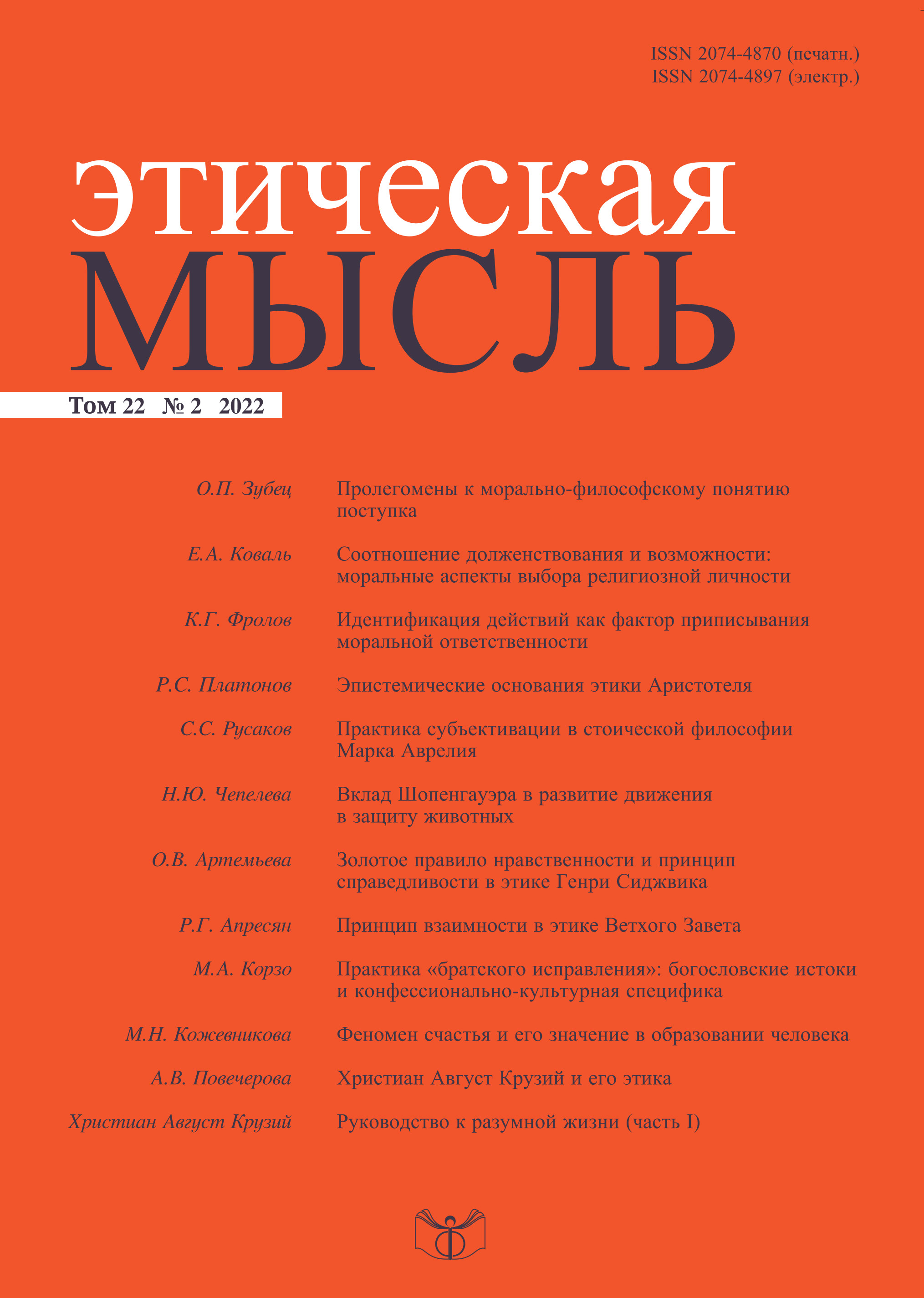Correlation Between “Ought” and “Can”: Moral Aspects of the Choice of Religious Person
DOI:
https://doi.org/10.21146/2074-4870-2022-22-2-21-33Keywords:
ought, normativity, “ought implies can”, canon, normative documents of the Russian Orthodox Church, oikonomia (οἰκονομία), akribeia (ἀκρίβεια), moral choiceAbstract
Paradoxically, the choice of a variant of behavior, as well as the norm that should be followed in a particular case, is the more difficult, the more variations of normative prescriptions a person has. This article is devoted to the peculiarities of the moral aspects of choosing by a religious person in problematic life situations (moral choice of an Orthodox Christian belonging to the Russian Orthodox Church is used as an example). In particular, the situation associated with such an ambiguous phenomenon as divorce is considered. A religious person in such a situation is presented with norms that contain a different amount of requirements. Canons prohibit divorce (there is only one exception – the betrayal of one of the spouses). Norms formulated by modern church authorities prohibit divorce, but allow it in the presence of one of eleven reasons. A complex dilemma arises when choosing between the canons and the new norms. If such a choice is made by a competent cleric (bishop, clergyman), the principles of oikonomia (indulgence) or akribeia (literal adherence to the canon) are used. If a layman makes a choice in a particular life situation, in order to formulate a moral assessment or self-assessment adequate to the case, one of two formulations of a well-known moral principle can be useful: a normative formulation “ought implies can”, that expands responsibility, or a formulation “without ‘can’ there is no ‘ought’”. The latter wording serves as the basis for limiting liability for the choice.









